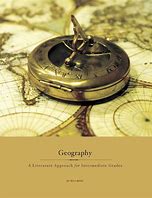In today’s fast-paced world, where physical travel might not always be feasible, literature serves as a remarkable vessel that allows us to embark on journeys to distant lands, immerse ourselves in diverse cultures, and explore the uncharted territories of our imagination. At the intersection of words and worlds, we find an escape that transcends the limitations of reality. In this article, we present a curated selection of books that effortlessly transport you to faraway places, igniting the flames of wanderlust from the comfort of your armchair.
1. Journey to the Magical Realms: One Hundred Years of Solitude by Gabriel García Márquez
Set against the lush backdrop of Macondo, a fictional town in Colombia, “One Hundred Years of Solitude” takes readers on a multigenerational journey through time and space. Márquez’s lyrical prose and enchanting storytelling paint a vivid tapestry of Latin American culture, superstitions, and the magical realism that blurs the line between reality and fantasy. As you turn the pages, you’ll find yourself wandering through a world where the extraordinary becomes ordinary, and where the boundaries of possibility are expanded beyond measure.
2. A Passage to India: E.M. Forster’s Exquisite Exploration of Colonial India
E.M. Forster’s “A Passage to India” is a masterpiece that delves into the complexities of colonialism and cultural misunderstandings. Set in the backdrop of British-ruled India, the novel follows the interactions between English colonizers and the native population. Forster’s keen observations and eloquent prose provide readers with an immersive experience of the Indian landscape, its vibrant society, and the tensions that simmer beneath the surface. Through this literary journey, you’ll traverse the dusty streets of Chandrapore and feel the palpable heat of the Indian subcontinent.
3. Sailing the High Seas: “Moby-Dick” by Herman Melville
Embark on a nautical adventure like no other with Herman Melville’s “Moby-Dick.” This epic tale of Captain Ahab’s relentless pursuit of the elusive white whale is more than just a seafaring saga; it’s a philosophical exploration of the human psyche and our primal desires. From the moment you step aboard the whaling ship Pequod, you’ll be swept away by the salty breeze, the creaking of the ship’s timbers, and the vastness of the open ocean. Melville’s intricate descriptions of whaling practices and maritime life immerse you in a world that’s both awe-inspiring and treacherous.
4. The Enchanting Streets of Marrakech: “The Alchemist” by Paulo Coelho
Paulo Coelho’s “The Alchemist” invites readers to follow the journey of Santiago, a shepherd boy from Spain, as he embarks on a quest to discover his personal legend. The story takes us from the rolling hills of Andalusia to the bustling markets of Marrakech, Morocco. Coelho’s evocative prose captures the essence of each location, making you feel the scorching desert sands beneath your feet and the heady aroma of spices in the air. Through Santiago’s eyes, you’ll witness the transformative power of travel, both externally and internally.
5. A Trek into the Heart of Africa: “Heart of Darkness” by Joseph Conrad
Joseph Conrad’s “Heart of Darkness” invites readers to journey deep into the heart of Africa, guided by the enigmatic figure of Kurtz. As the protagonist, Marlow, ventures into the uncharted Congo River, readers are exposed to the harsh realities of colonial exploitation and the darkness that resides within the human soul. Conrad’s haunting descriptions of the African wilderness and the psychological descent into the unknown create an atmosphere that is as chilling as it is thought-provoking. This literary voyage challenges our perceptions and beckons us to confront the shadows within ourselves.
6. Unveiling the Mysteries of the East: “Shantaram” by Gregory David Roberts
“Shantaram” by Gregory David Roberts is a sprawling epic that takes readers on a captivating journey through the bustling streets of Mumbai, India. The novel draws from Roberts’ own experiences as a former convict who escaped to India, and it weaves a tale of redemption, love, and the pursuit of identity. Through vibrant descriptions, readers can almost taste the street food, hear the cacophony of the markets, and feel the pulse of a city teeming with life. “Shantaram” is a literary passport to India, offering an intimate and immersive experience of its diverse culture and contradictions.


